
The preparation for the USMLE exams can be quite challenging, not exclusively due to the difficulty level involved, but also the insecurity that we may feel about how to prepare for it. Knowing how to make a study plan for the USMLE exams is very important. There are plenty of sources that we can rely on like courses and books, but one thing is certain: “Nobody has found the best way to do it”. I state this because I believe it is important to understand that what works for some people may not work for others. The way we learn varies depending on the individual characteristics, which means that what was an excellent way for me to study may be awful for you.
It is crucial that you try to find what is the best learning techniques that really suit you, and begin using them early in your preparation. The resources that you can use are extensive, I would recommend doing your own research about all of them. I will write about the ones I used and helped me prepare for the USMLE Step 1. Please, if you are interested in knowing a little more about the study techniques that you can use, go to this link that I found really helpful for me.
5 Study techniques every clinical student should know
Now, going back to the objective of this post which is how to make a plan or schedule for taking our board exams, I would like to mention that making a plan early on with realistic objectives is the most important first step to do.
For example, if you are working or doing your medical rotations, or simply you cannot study on a full-time basis, you will not be able to study a lot of content every day, therefore your schedule should be a little more flexible. In the other hand, if you do have time for preparing for the exams, it would be wise for you to use it and study hard, this will allow you to finish your exam in a shorter period.
HOW TO START MAKING YOUR STUDY PLAN OR SCHEDULE:
- To know your enemy: Comprehend all about the exam.
- Set your goals: desired score.
- Make a preliminary timeline.
- Define your weapons: Study materials.
- Set your daily routine or schedule.
- Study smarter and not harder: Recognize what is high yield for your exam and you definitively will spend more time studying.
- Control your progress.
- Make your definitive timeline near the exam date (at least 2 months before).
- Master your exam.
- Enjoy and relax once it’s over.
These are the steps that you will be following during your entire preparation. I will develop every one of them so that you can understand how they can be approached. I will use mostly the USMLE Step 1 exam as an example, but this guide can be applied to all of them except the Step 2 CS exam.
1. TO KNOW YOUR ENEMY:
It is very important to know our enemy, in this case, of course, the exam we will be preparing. Read everything you can about the exam, what kind of test is it, how many hours you will be there, the break time, the rules, etc. With this, you’ll feel relaxed and will perform better. For more information about the exams, visit usmle.org:
- USMLE United States Medical Licencing Examinations
- ECFMG Educational Commission for Foreign Medical Graduates
To know more about the Residency process and ECFMG/USMLE, please go to this link:
2. SET YOUR GOAL:
The desired score is the most important thing to establish in the beginning, we can determine it depending on our expectations and what we want to do. One thing is sure, the better scores you have the better chance to enter into a residency program.
For International Medical Graduates the scores are key, the usual goal that we all want to achieve is >240, but it is best to calibrate your goals depending on what specialty you would like to apply. For more information about the recommended scores by specialty go to the following link:
Results of the NRMP Residency (MATCH) Program Director Survey
This is a survey done after the 2016 MATCH process to program directors, in which a lot of very important points are described. You will find there the scores required to get an interview in the program of interest, applied to every speacialty depending on one’s interests.. This is very important, I would like to recommend that you use this guide for the purpose of setting your desired goal. In a nutshell, a score above the 240’s should be enough for almost all specialties but remember that the score is not the only requirement for getting a residency spot.
3. MAKE A PRELIMINARY TIMELINE
The preliminary timeline will be your first and brand new plan, that will help you to start and follow-up your progress in your preparation. It will probably change with time because it can be quite difficult to follow the schedule perfectly. I can assure you that you will probably make a few changes along the way.
In order to be able to set your timeline effectively, I recommend taking an NBME Assessment test, because it will serve as a diagnostic and accurate test for determining where are we starting, and for following up our progress. To create an account and purchasing an NBME test, please go to the following link:
NBME National Boards of Medical Examiners – Self-Assessment Services
The exam names are not labeled as Step 1, Step 2 CK or Step 3. For the USMLE Exams correlation, the names are:
- Comprehensive Basic Science Self-Assessment (CBSSA) = Step 1.
- Comprehensive Clinical Science Self-Assessment (CCSSA) = Step 2 CK.
- Comprehensive Clinical Medicine Self-Assessment (CCMSA) = Step 3.
For the USMLE Step 1 exam, most sources recommend taking the CBSSA Self-Assessment 13 as the diagnostic test for you.
Depending on the score that you get, you could follow this chart:
With this, you can have an idea how long is gonna take you to prepare and give your exam. This may be shorter or longer depending on your pace, but it is a good guide for comparing how you are doing. It is very important to know that the majority of people taking this diagnostic exam will fall in the first category of < 190, you can get a really bad score here and that will be expected more if you are an International Medical Graduate (IMG). Don’t feel disappointed by this, remember this is where you start and you will improve a lot, it can be done and you’ll do it for sure. Get the work done and you will see the results.
4. DEFINE YOUR WEAPONS: STUDY MATERIALS
The study materials that you can use for the USMLE exams can be very broad and you will find a lot of options. I would suggest picking one and sticking to it the whole time since trying to cover a lot of material can confuse you and delay your preparation time.
The basic elements for preparing for the USMLE exams are:
- One Q-bank: Let’s convene that Uworld is by far the most popular and important Q-bank, but you can make your own choice. Other popular Q-banks are the Kaplan Q-bank, USMLE-Rx Q-Bank, board vitals Q-bank, etc.
- One main book: Usually The First Aid for the USMLE Step 1 exam is the chosen one, but you can pick any. I would recommend not using more than one book because to be honest you will probably not have enough time to do it and sometimes you can get confused getting information from two sources since every one of them will explain in different ways.
- Practice exams: NBME Self-Assessment Exams, Uworld self-assessment exams.
- Pathoma videos: very helpful for pathology, they are really good.
- Any other source for any specific doubt, don’t take too long searching for information though.
These are the ones that deserve most of your time and then you can complement with any other source. Doing questions every day is the best strategy in my opinion because that is what you’ll be doing during your exam. Remember that test-taking strategies will be improved every day the more questions you practice.
5. SET YOUR DAILY ROUTINE:
Planning your daily routine depends on the time you have available for studying. I used to stress a lot because of this, but now I noticed that as long as you plan and assign the study time during your day you will be fine. Remember that this is a long way, take it easy and go step by step. Sleeping at least 8 hours per night is very important. Take care of yourself, exercise, and eat well. Go out and relax your mind. We tend to think that all we have to do is study but as human beings, we need to be in a good shape physically, emotionally and mentally.
A simple way to plan your day can be done like this:
06:00 am: Wake up
06:00 to 08:00 am: Exercise, shower, and have breakfast.
08:00 to 13:00 pm: Study time (4 hours). DO Uworld or any other Q-bank timed blocks and then review the questions carefully. Don’t skip the incorrect answer explanations, read and understand it all.
13:00 to 14:30 pm: Lunch.
14:30 to 19:30 pm: Study time (5 hours). You can choose between halftime Q-bank and the other half the book or any other study method. I would always emphasize the questions over the books. The questions are for learning more than testing yourself.
19:30 to 21:30 pm: Enjoy this time with any activity that you like.
21:30 to 22:00 pm: prepare to sleep.
22:00 pm: Go to sleep, if you wake up the next day at 6 am you will accomplish the goal of sleeping 8 hours per night.
TOTAL STUDY TIME: 9 HOURS
Don’t forget to take breaks every 50 to 60 minutes of study, I would recommend taking 10 minutes which are the usual time that you have during your exam, maybe less than that.
6. STUDY SMARTER NOT HARDER
Identify what is high yield information for your exam that definitively you will spend more time studying. Sometimes we spend an hour in one very difficult question about a low yield topic, instead of doing 4 to 5 questions of a more high yield and easier material that will probably appear on your exam more than that difficult question. Use your time wisely. Sometimes you would need to skip very hard questions and move one if you are taking more than 30 minutes without understanding or finding anything important about it. Sometimes in a very high yield question, you could spend 2 hours studying it because this will help you to get correctly every single question about that topic. Again, study smarter not harder.
How to distribute the topics for the available study time?
There are 3 subjects that are the most important for the USMLE Step 1 exam:
- Physiology.
- Pathology.
- Pharmacology.
Dedicate 60 to 70 % of your study time for these 3 subjects and the rest of all the others. This is very important because most of the questions that you will have during your exam will come from these, and learning them will help you to understand everything else.
If you are wondering what subject to start a good order to follow would be:
- Physiology.
- Pathology.
- Immunology
- Microbiology
- Pharmacology.
- Biochemistry.
- Anatomy.
- Embryology.
- Biostatistics.
“The number of questions that you need to do depends on your own pace, a lot of people will tell you that you should do more than 100 questions a day, or that you need to do 4 blocks a day, or that they do 1 block of 40 questions and then they take an hour to review it meticulously. That is not even mathematically possible, you can do your own calculation. Be sincere with yourself, sometimes you will do less than 4 question in an hour, but if you feel that you are learning and that’s the pace that you need, then do it. Do not follow an advice rigidly, not even mine. Follow your own rhythm. Use the questions to learn how to get them right, why are you getting them wrong and how to recognize what does the question writer wants you to do with that particular question. This test is all about test-taking strategies and applying your knowledge”.
7. CONTROL YOUR PROGRESS.
You can control your progress in two ways:
- The percentage of the Q-Bank that you have done and have left. Don’t stress too much about your overall score. The Q-Bank is more a learning tool.
- Follow up your scores in the following NBME and Uworld Self-Assessments that you take.
I’m gonna show you how I followed up my test results. It is very simple, you just need to create a table in Excel, Pages, or any other program and write them down like this:
This helps a lot to know where you are and what score you will probably have. You can do a mean between the scores of the tests taken 1 month before your exam, that way you walk to the Prometric Center knowing where you are and what are you capable of doing. Trust yourself.
8. MAKE YOUR DEFINITIVE SCHEDULE OR TIMELINE NEAR THE EXAM DATE:
How to make a study plan for the USMLE exams aims to respond to this definitive timeline too. This plan is for two to one month before your exam and should be a more strict schedule to follow, that will help you to achieve the last goals of your preparation and allows to have enough time for studying and testing yourself. I would recommend that you allocate most of your time when getting closer to the exam doing questions.
This is an example of the schedule that I used until the day of the exam:
You can see here the dates I took my practice and real USMLE Step 1 exam, as you can see I did several practice tests in the last month and review them the best I could. The rest of the days were as always doing Uworld questions and reviewing the highest yield information as we already discussed. This is very important because you will now every day what you’ll need to do and when your exam will be.
As a rule of thumb, if you are scoring more than 235 – 240 in your last practice exams you are ready to give your exam, you will probably score slightly higher than your mean of the last month because the NBME tests usually are harder than the real exam. That was my experience, and for what I know from others too, which means that it may be different for you and the final decision is always yours. For such a difficult exam all I can say is that you may never feel completely ready for it, so just trust yourself and if your scores have been good recently you are ready to take this challenge.
9. MASTER YOUR EXAM
Prepare with anticipation at least several days before the exam, take with you the important documents like your ID and scheduling permit, follow the rules of the Prometric centers and most importantly, remember, it is just a test, you came here doing everything correctly and giving your best. You are already a Champion. Taking the USMLE exams is something huge and you should be proud of doing something that most people in the world are terrified of doing. Enjoy and be happy with being such a brave person.
10. ENJOY AND RELAX ONCE IT’S OVER
The exam is over now, no matter what you can think or recall about it is not important now. You faced such a difficult test and now you should be proud of yourself regardless of the result. All you can do now is recover, go out and enjoy your life for a few days and then plan your next objective. The results take 3 weeks approximately to come, I recommend to you not worry about it until it comes. Once you know your result you will know what’s next. If you passed, congratulations. If you didn’t don’t give up. You are so valuable and brave and you can do it again.
I hope that how to make a study plan for the USMLE exams suits you and allows you to achieve your goals. I believe that the USMLE exams are the hardest and beautiful challenge that I have ever encountered. It is possible to pass it and ace it too, everything depends on how hard you work. Good luck in your studies and trust in your abilities.
- Aortic Stenosis Severity Classification - 09/22/2020
- Carboplatin (Paraplatin) - 04/07/2019
- How to test for Vitamin D deficiency? - 09/29/2018
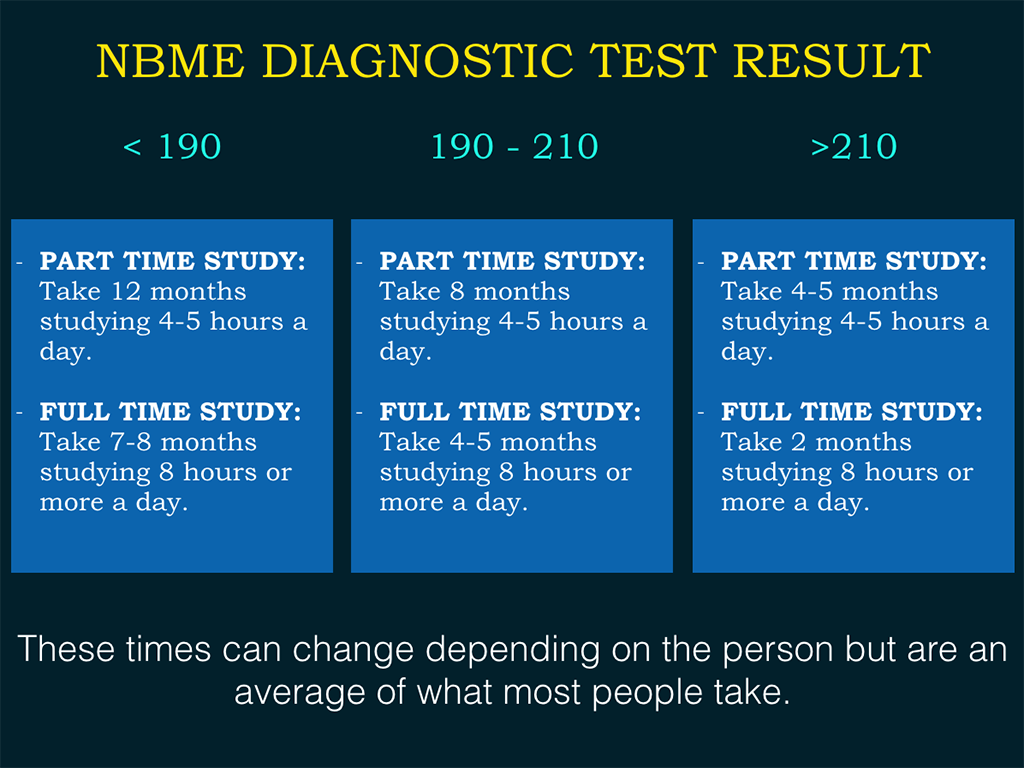
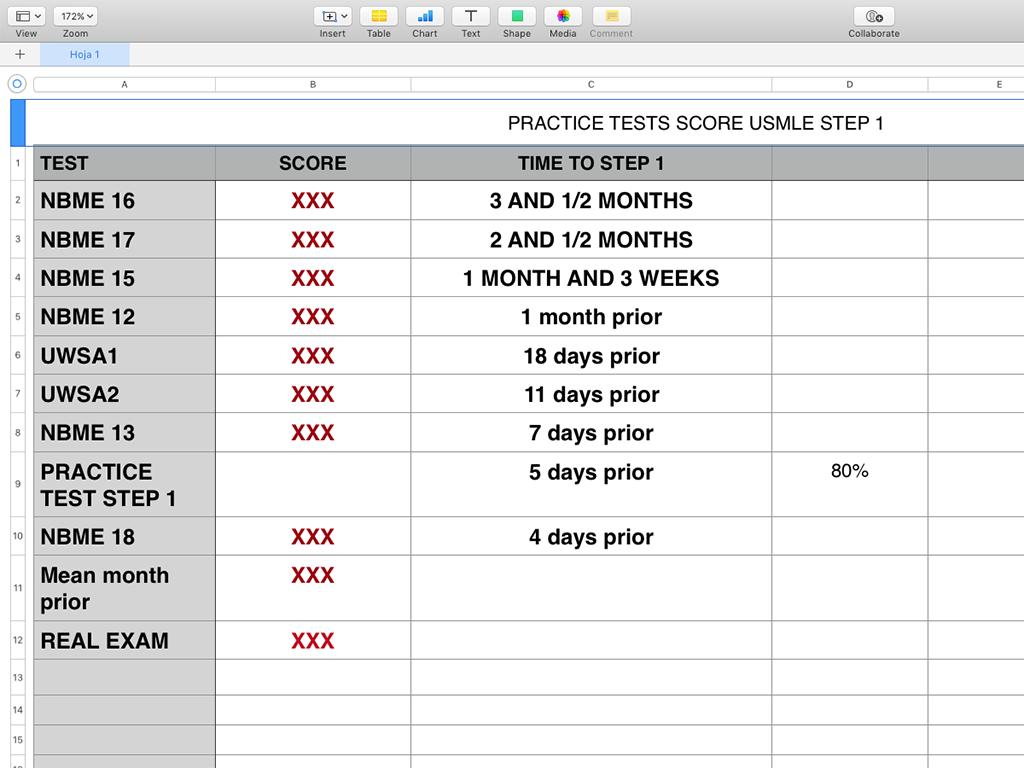
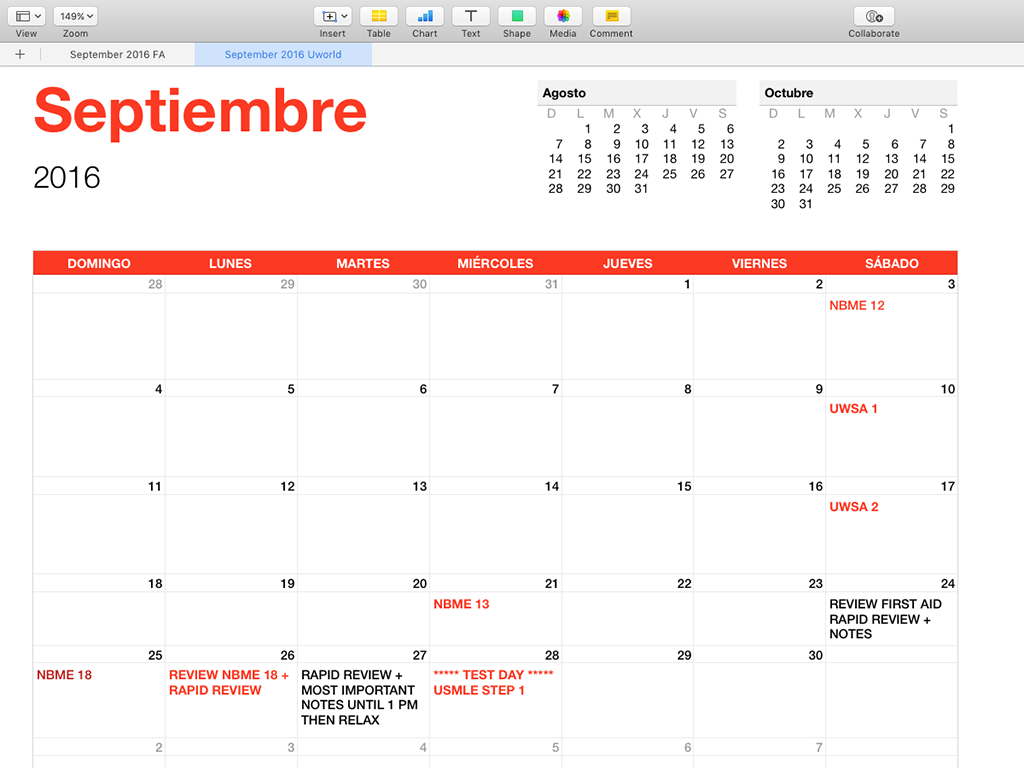
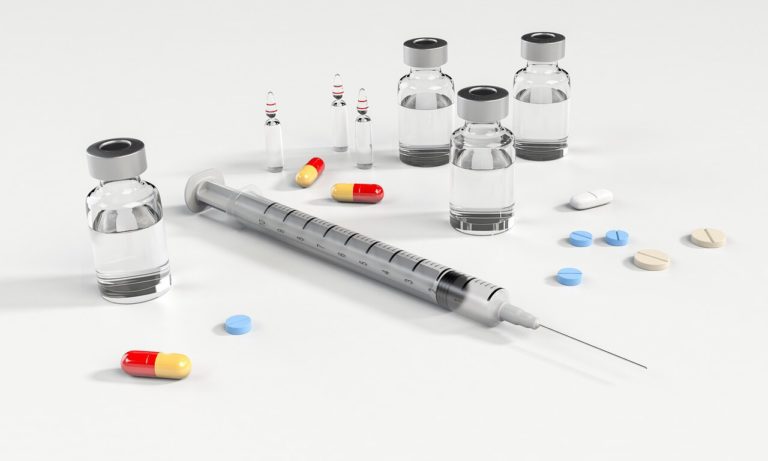

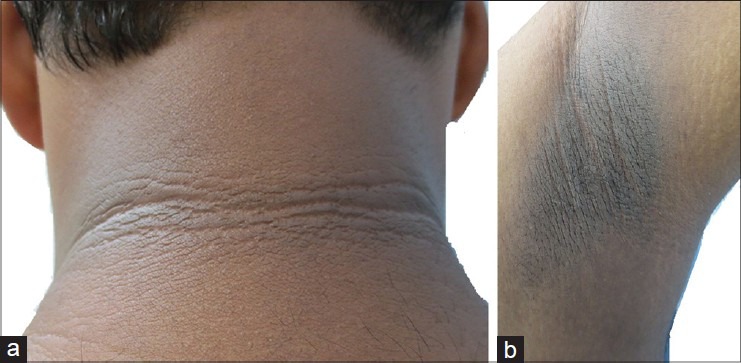



Thank you for sharing your very valious experience. I’m an IMG currently in the USMLE process. It has ben tough but I keep going. Would you mind if I ask how your score was? And Which programs did you apply for? Thank you!
Hello Marisabel,
The entire process is hard but it is possible. Keep fighting! In ecuadoctors under the about section you can find a portfolio where my CV and scores are. Everything is there. The programs I applied are similar to the ones in this publicación:
https://ecuadoctors.com/img-friendly-internal-medicine-programs/
I hope this helps.
Kind regards.